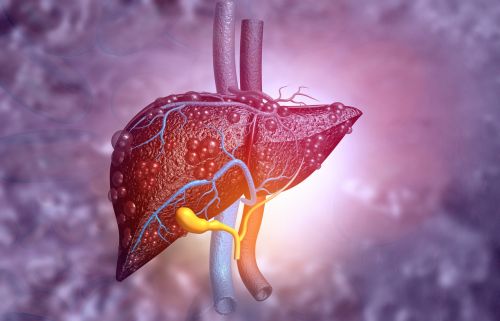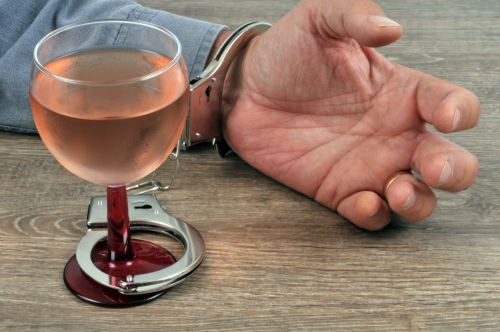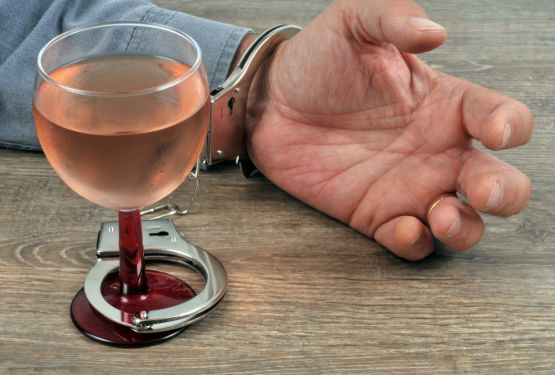This memo was worked out by a psychologist and addictologist Michel Naudet.
The main goals are:
- To help relatives to understand what alcoholism is, to investigate the mechanism of dependence.
- To discuss the stages of treatment, which include the elimination of physical dependence, temporary abstinence, and total alcohol abstinence.
- To answer questions that emerged.
Contents:
- The scientific explanation of the disease “alcoholism”.
- What is alcohol addiction? Why does a person become addicted to alcohol? Varieties of alcohol addiction.
- Somatic, physical, and behavioral effects of alcohol abuse. Pharmacological and non-pharmacological methods of treatment.
- Stages of recovery. The role of the alcohol addict’s family at all stages.
- The behavior of relatives while the patient is in the clinic.
- Homecoming
- The patient's life during the illness and the process of recovery. The role of the people around him at all stages.
- Awareness of the suffering of loved ones.
- False move and relapse. How to react to a relapse? To allow the patient to solve the problem on his own or talk to him? Behavior to be avoided.
Note. The following materials were used while writing this article:
- “Decisive Glass”, Dr. A.Benyamina.
- “To do away with alcoholism: scientific facts versus popular misconceptions”, Dr. Philippe Batel.
- “One for the road!”, Hervé Chabalier.
- “When he drinks. Vital manual for the relatives of alcohol addict”, C.Uehlinger.
- “Growing up under the shadow of an alcoholic parent”, J. Allain-Voyard, D. Demeria.
- “To cure a disease - My parent is an alcoholic”, P. Chayer Gelineau & F. Moreau.
There are many alcohol addiction support groups and associations for families who live with alcoholics in France. There are more than 230 such centers where qualified psychiatrists and psychologists work.
The problem of alcohol addiction is quite important in France. The French are making every effort in the fight against alcoholism.

LIVING WITH AN ALCOHOL ADDICT
The realization that a loved one can no longer control alcohol consumption is a real shock for relatives. Before they agree that the problem exists, they deny it, which is a kind of defense reaction. Awareness helps to understand that these abuses threaten a bright future and cannot be controlled anymore.
What does usually happens to relatives of the patient?
- They ask themselves a large number of questions in order to find the cause of this dependence and to determine their involvement in this. “Is it my fault?”, “He says that he drinks because of me, is that really so?”
- Sometimes, they torment themselves and put their health at risk: they start taking sleeping pills, sedatives, stop eating and sleeping well.
- They move from one state to another, alternating hatred, guilt, anger with hope and love, which destabilizes the situation.
- They experience shame, try to hide the problem and isolate themselves from society.
How a loved one tries to solve this problem:
- He wants to talk to the patient in order to understand him and his illness.
- He threatens the patient and demands to change his behavior and lifestyle.
- He begins to overprotect the patient and give him as much love as possible, hoping that the patient will appreciate it and stop drinking in gratitude.
- Sacrifices his desires and needs.
The last variant of behavior is called CO-DEPENDENCE. Co-dependence is to become ill because a loved one is ill. It keeps the relatives of the patient alone with a problem that they cannot solve and control “in custody”. The relatives try to justify any behavior of the patient, they hide the problem, do some things instead of the patient. They try to control his behavior, to do some things secretly. As a result, loved ones withdraw into themselves and become unsociable.
The strategy of TOTAL CONTROL means monitoring the life and behavior of an alcohol addict. Not only the amount of alcohol consumed is controlled; an alcohol addict is forbidden to attend various events, he is always accompanied. It has been scientifically proven that total control does not do any good. A person who craves alcohol will find an opportunity to drink anyway! The total control hinders and makes loved ones a false hope. Elation, when the patient refuses to drink even a glass of wine, and bitter disappointment, when the patient relapses into carouse again usually alternate with each other. The relatives lose their faith when they see that they cannot fully control the patient and thus provoking the behavior of a pathological liar in the patient. It causes a constant feeling of anger not only towards the patient but also towards friends and other relatives who see everything but do nothing.
Threats, pleas, and requests do not benefit.

The strategy of TOTAL CONTROL means monitoring the life and behavior of an alcohol addict. Not only the amount of alcohol consumed is controlled; an alcohol addict is forbidden to attend various events, he is always accompanied. It has been scientifically proven that total control does not do any good. A person who craves alcohol will find an opportunity to drink anyway! The total control hinders and makes loved ones a false hope. Elation, when the patient refuses to drink even a glass of wine, and bitter disappointment, when the patient relapses into carouse again usually alternate with each other. The relatives lose their faith when they see that they cannot fully control the patient and thus provoking the behavior of a pathological liar in the patient. It causes a constant feeling of anger not only towards the patient but also towards friends and other relatives who see everything but do nothing.
Threats, pleas, and requests do not benefit.

Relatives’ behavior
The family circle (family) is a balanced system, in which each family member is an important element. One element cannot change or force another element to change on its own. Nevertheless, this element can change the behavior if several elements change their behavior. Thus, the missing balance will be able to redress.
There are some tips that may help relatives to behave towards the alcohol addict in the right way:
There are some tips that may help relatives to behave towards the alcohol addict in the right way:
- You should understand that the help of associates is not obligatory for the recovery of an alcohol addict.
- You cannot give up drinking instead of the patient and cannot cure him if he does not want it
- You need to change your attitude, not the behavior of the patient.
- Sacrificing yourself and living for the patient will not change anything, but will lead to co-dependence.
- Your sufferings do not alleviate the sufferings of the patient.
- Close people are not responsible for the onset of the disease and for the treatment. Despite the fact that the behavior of loved ones undoubtedly plays an important role, only the patient himself can decide to recover.
- Everything that you do instead of the patient deprives him of responsibility. The patient should realize the consequences of his illness.
Change your behavior
- Make the patient understand that you no longer nurse and monitor him. Tell him that he must decide for himself whether he wants to be treated or not.
- Speak to him as if his illness is a somatic pathology.
- Learn to live for yourself and meet YOUR personal needs.
- Avoid feeling guilty. Get ready that you can be condemned for your behavior, blamed for selfishness.
- Define clear rules and adhere to these rules. For example, “If you come home drunk, I will not let you in,” “If you hit me I will call the police,” and so on.
- In no case do not do anything instead of the patient. He must be responsible for what is happening.
- It is you who need support but not the patient. Do not neglect all sorts of associations that support relatives of alcoholics and the help of psychologists.
Actions to avoid:
- Reproach. Alcoholism is a disease! Nobody would blame a person for being ill with diabetes or asthma!
- Explaining something to the patient when he is intoxicated. It will not work and cause aggression. When the patient sobers up, he will not remember your conversation.
- Manipulating relationships. Telling an inebriate that if he loved you he would quit drinking is silly enough. This disease has nothing to do with love. Such behavior will cause a sense of guilt of the patient and make him suffer even more, which may only exacerbate the addiction.
- Trying to control the amount of alcohol consumed. No one can stop the patient from drinking. He may start drinking without your knowledge.
- Showing your anger. Calm makes a better impression than screams and scandals. Even if you are fuming, restrain yourself. Your anger will only push the patient to drink more alcohol because he will feel lonely and rejected.
- Doing something instead of him. Every time you are doing something instead of the patient, he feels safe or not implicated in what is happening. It makes the patient postpone his decision to overcome the addiction, as he is sure that there are people who will help him with this. It is very important to distinguish the situations when an alcohol addict is in real danger from ordinary life situations. Help should be provided rarely and only in a "homeopathic" manner.
- Pretending you believe his lies in order to avoid conflicts or to calm yourself. It is important to show the patient how things really are. Remember, however, that it makes no sense to talk with a person when he is intoxicated.
- Forcing a person to make promises and believe these promises. At the moment when the patient is giving promises, he is often honest. Nevertheless, do not forget that a person is ill and this illness is beyond his control, so he is not always able to keep promises.
- Sacrificing yourself. As we mentioned above, co-dependence is the worst thing. It does not help, but only ruins the patient and the co-dependent relatives.
What about the children?
No matter how old a child is, he always feels family problems and a tense atmosphere. It is necessary to discuss everything with the child. You need to explain that it is not his fault for what is happening. Prepare your child that peers may jeer at him. Very often, children need the help of professionals, such as psychologists or a family doctor.
WHY PEOPLE BECOME ADDICTED TO ALCOHOL
We will discuss several reasons for becoming addicted to alcohol. Particularly, we will single out biological factors that play a very important role in this process. The desire to stop drinking becomes impracticable.


Feelings experienced by a person who first tasted alcohol
Alcohol is part of the culture. It is present on festive tables in many countries of the world. Most often, a child or a teenager is allowed to take his first sip on high days or holidays. A child may also filch a glass of spirits as a sample from the table, while no one sees.
A person who has tasted alcohol for the first time may experience one of the following reactions:
A person who has tasted alcohol for the first time may experience one of the following reactions:
- He feels unwell because he has some health problems, in particular problems with enzymes and the liver. The “taster” understands this perfectly well and is not going to repeat the experience.
- The opposite effect. Alcohol may become a real discovery that positively affects mood. The person feels a sense of euphoria, feels relaxed. After that, he will increasingly drink alcohol, especially when things are not going well. In addition, alcohol helps such people to feel more comfortable in the company (with other people). The brain stores this information for life, even if a person does not drink after it for some years
- A person does not feel a considerable effect, but he will still drink from time to time, using alcohol as a way of socialization when meeting friends or during feasts. He may also just drink through habit.
From occasional consumption to regular consumption
In rare cases, a person stops drinking alcohol at all, most often for religious reasons or due to severe allergies (in France, it amounts to 2% of people of full legal age). The rest of the population consumes alcohol from time to time to feel good and relaxed. Most of them will drink alcohol from time to time for life. Some people drink seldom, some people drink often; there are also those who drink every day.
Regular consumption of alcohol may grow into abuse. The reasons for this are a cheerful and dissolute life with frequent parties, or, on the contrary, a constant feeling of stress, anxiety, psychological disorders, and phobias, which do not disturb while intoxicated.
Regular consumption of alcohol may grow into abuse. The reasons for this are a cheerful and dissolute life with frequent parties, or, on the contrary, a constant feeling of stress, anxiety, psychological disorders, and phobias, which do not disturb while intoxicated.
Alcohol abuse
Alcohol abuse triggers a series of processes in our body that gradually increase the need to take alcohol, regardless of the initial reason for which a person began to drink.
The organ most affected by alcohol abuse is the liver. If you drink alcohol in small quantities, your liver can break down it quickly before it enters the bloodstream and spreads to other organs. If the dose of alcohol is rather big, then the part of it that the liver failed to break downflows into the blood and reaches the brain and causes bad behavior.
Over time, the liver adapts and begins to break down more and more alcohol. However, by doing so, it ceases to perform its other functions.
An alcohol-dependent person has to drink more and more alcohol to get the euphoria effect. This phenomenon is called alcohol tolerance. In order to get the effect of alcohol, an alcohol addict should constantly increase the dose of alcohol.
An important participant in this process besides the liver is the brain. Over time, the brain gets used to the state of pleasure and requires its owner to repeat this state time and again. The person starts craving alcohol more often. Gradually, alcohol begins to play a very important role in a person’s life, which leads to the following types of addiction: physical, behavioral (when consuming alcohol entail certain activities), emotional (when there is a need of returning pleasant sensations), and cognitive. It allows a person to feel liberated and to attract attention to himself only when intoxicated. Alcohol will be associated with holidays, pleasure, liberty etc.
The organ most affected by alcohol abuse is the liver. If you drink alcohol in small quantities, your liver can break down it quickly before it enters the bloodstream and spreads to other organs. If the dose of alcohol is rather big, then the part of it that the liver failed to break downflows into the blood and reaches the brain and causes bad behavior.
Over time, the liver adapts and begins to break down more and more alcohol. However, by doing so, it ceases to perform its other functions.
An alcohol-dependent person has to drink more and more alcohol to get the euphoria effect. This phenomenon is called alcohol tolerance. In order to get the effect of alcohol, an alcohol addict should constantly increase the dose of alcohol.
An important participant in this process besides the liver is the brain. Over time, the brain gets used to the state of pleasure and requires its owner to repeat this state time and again. The person starts craving alcohol more often. Gradually, alcohol begins to play a very important role in a person’s life, which leads to the following types of addiction: physical, behavioral (when consuming alcohol entail certain activities), emotional (when there is a need of returning pleasant sensations), and cognitive. It allows a person to feel liberated and to attract attention to himself only when intoxicated. Alcohol will be associated with holidays, pleasure, liberty etc.
Alcohol addiction. Why the patient cannot stop drinking
If you do not give up constantly drinking alcohol, alcohol tolerance will lead to physical dependence.
Alcohol is a strong poison for the human brain, it provokes a malfunction in its work, namely, in the transmission of impulses between different neuroreceptors that transmit signals between the brain and the rest of the body. When alcohol consumption is excessive and frequent, the brain activates an automatic protection system that tries to restore information transfer in every possible way. When this protection is activated the human brain perceives the absence of alcohol as a loss of information transfer. Alcohol shortage causes withdrawal syndrome and is called the symptômes de sevrage (French). These symptoms include anxiety disorder, tremor, increased sweating. These signs appear not only when there is complete abstinence from alcohol, but also when the blood alcohol concentration decreases (morning hours). The stronger the addiction is, the more apparent the symptoms are.
The patient has to take alcohol to alleviate the symptoms of hangovers. It turns out a vicious circle.
We see that the patient has deprived himself of a right of choice - to drink or not to drink. He has to drink as much alcohol as the body needs to overcome the protection activated by the brain. This process becomes continuous.
When the decision to get rid of alcohol addiction is made, it is necessary to deactivate the protection created by the brain. This procedure should be performed in a clinic. Over some time, it can be performed on an outpatient basis under the supervision of the addictologist who cured the patient in the clinic and who knows the reaction of the patient’s body to various medicines. One needs 7-10 days so that the liver and the brain start functioning in a proper way again.
Our body, however, does not forget all negative factors. The brain puts the protection into sleep mode and is ready to activate it at the moment when the danger appears again. If the patient drinks even a small amount of alcohol after months or even years of abstinence, the protection will be activated immediately. The degree of protection will be the same as it was during a drinking bout. Even a glass of wine activates the protection to the maximum, and the patient finds himself at the worst stage of his illness when he needs to drink as much alcohol as he drank earlier.
Alcohol is a strong poison for the human brain, it provokes a malfunction in its work, namely, in the transmission of impulses between different neuroreceptors that transmit signals between the brain and the rest of the body. When alcohol consumption is excessive and frequent, the brain activates an automatic protection system that tries to restore information transfer in every possible way. When this protection is activated the human brain perceives the absence of alcohol as a loss of information transfer. Alcohol shortage causes withdrawal syndrome and is called the symptômes de sevrage (French). These symptoms include anxiety disorder, tremor, increased sweating. These signs appear not only when there is complete abstinence from alcohol, but also when the blood alcohol concentration decreases (morning hours). The stronger the addiction is, the more apparent the symptoms are.
The patient has to take alcohol to alleviate the symptoms of hangovers. It turns out a vicious circle.
We see that the patient has deprived himself of a right of choice - to drink or not to drink. He has to drink as much alcohol as the body needs to overcome the protection activated by the brain. This process becomes continuous.
When the decision to get rid of alcohol addiction is made, it is necessary to deactivate the protection created by the brain. This procedure should be performed in a clinic. Over some time, it can be performed on an outpatient basis under the supervision of the addictologist who cured the patient in the clinic and who knows the reaction of the patient’s body to various medicines. One needs 7-10 days so that the liver and the brain start functioning in a proper way again.
Our body, however, does not forget all negative factors. The brain puts the protection into sleep mode and is ready to activate it at the moment when the danger appears again. If the patient drinks even a small amount of alcohol after months or even years of abstinence, the protection will be activated immediately. The degree of protection will be the same as it was during a drinking bout. Even a glass of wine activates the protection to the maximum, and the patient finds himself at the worst stage of his illness when he needs to drink as much alcohol as he drank earlier.
Saying goodbye to alcohol addiction
Stop drinking alcohol is a personal decision of each person. First of all, the patient does this for himself. Desire alone, however, is not enough. To achieve good results one should carefully consider his behavior and his life.
There is no magic pill that can cure this disease at once. The only “medicine” is the patient himself. He is the main actor of this play, and clinics and doctors play episodic roles.
There is no magic pill that can cure this disease at once. The only “medicine” is the patient himself. He is the main actor of this play, and clinics and doctors play episodic roles.
There are several stages of treatment.
If the patient has a physical dependence, then the first step is getting rid of the craving (withdrawal). During this stage, the mechanism that makes the patient drink is “switched off”. The patient is relieved of such symptoms as tremor, depression, nightmares, palpitations, increased sweating. This stage involves drug treatment. The treatment is chosen individually, the patient and his state of health are constantly monitored by specialists. Treatment may be changed if necessary; it depends on the strength of the withdrawal syndrome. The duration of the first stage is 7-10 days.
Mind that alcohol dependence appears gradually. Not all patients have already a physical dependence. After treatment or during the later stages of treatment in the clinic, some patients feel that they have coped with their problem. They really do not want to drink. Unfortunately, this is an illusion, since psychological dependence still remains.
During the treatment in the clinic, the patient concentrates on himself, which is very important. He may communicate with doctors, medical staff, his translator and discuss his problem with them. It is important to understand how alcohol addiction affects a patient’s life. In other words, he should answer the questions: “Why do I need alcohol?”, “What role does it play in my life?”, “What does it give me? Joy? Pleasure? Comfort?"
Often, close people ask themselves the following questions: “To visit the clinic or not?”, “How often to call the patient?”, “Is it necessary to communicate with the doctors and the health care provider?”, “To be present with the patient during the consultations or not?” They should ask the patient about it and listen to his decision.
Getting rid of craving is the initial stage, and is not the most difficult one. The hardest thing is to learn to live without drinking alcohol. Having learned to live without alcohol, the patient overcomes psychological and behavioral dependencies.
The main task is to prevent relapse, for this, some favorable conditions are needed. Promises for yourself and for your loved ones are not enough. It is important to foresee all situations that may cause the desire to drink, and to think out a plan of action for each situation, so that not to provoke alcohol consumption that may cause alcohol relapse.

An integral part of the second stage of the treatment is sessions with psychologists, psychiatrists, and addictologists. These experts help the patient to understand himself, to realize his problem, to find out the reason for drinking alcohol. They also give some tips that will help the patient not to be tempted to drink alcohol in the future. Doctors have no magic power, the patient is treated with well-prescribed therapy.
The first two years of abstinence are the riskiest. It is two years that are necessary to untie the habit of drinking alcohol and learn to live absolutely without it.
Let us summarize. The desire to deal with this “sore” once and for all should not be just a desire. The fight against alcoholism is hard work that implies changing your habits and lifestyle. To overcome alcohol addiction is to learn no longer to drink.
Some psychological concepts
Effort. To desire is to make an effort. It helps to get rid of the constant state of guilt. Making efforts is to fight with your subconscious.
Want is an unclear and ambiguous concept. You may want to have a lot of money; want it to stop raining; want to give up smoking or drinking ... This concept does not imply an intention and constancy. “Want” also depends on many external factors.
Intention implies constancy in achieving the desired goal. It is internal, solid and does not depend on external factors. To intend is to be decisive in relation to what has been planned. The intention is confirmed by the willpower with the help of which you are firmly moving towards your goal. When a person is moving towards his goal, he does everything contrary to his slightest weakness.
Desire is something stronger than a want. However, desire is much weaker than intention, since it implies some emotions that hold us away from reality. For example, “I desire for a better life”, “I desire to stop drinking”...
Motivation is a conscious or subconscious factor that helps to achieve a goal.
Desire is the main impetus to motivation. If the patient is motivated, he has the intention to make every effort to achieve his goal. There are two conditions for proper motivation: an understanding of the importance of achieving a goal and a belief in yourself and in a result.
Alcohol abstinence – a means or a goal?
Abstinence from alcohol should not be the ultimate goal. The ultimate goal should be life, whose quality will improve considerably without alcohol.
To overcome addiction is, first of all, to make a decision that is accompanied by strong motivation. It is also to have the intention that helps to achieve a result. Abstinence alone is not enough; you should also have a strong desire to make your life better.
To have a want is also not enough to pull yourself together and give up drinking. However, just a want means dissatisfaction with life, so it is the initial stage of desire.
Efforts are forces coming from intention. Efforts are important, especially at the beginning. However, efforts without a strong desire can be in vain.
Does alcohol abstinence mean simply removing alcohol from life?
No, it means reorganizing your life. You should learn to live without alcohol. Spend the time you wasted on drinking on something useful. Change your lifestyle.
From now on, alcohol should not be a solution to life problems and failures, it should not be a source of joy either. Find something else that will bring you pleasure and serenity.
It is very important to concentrate all actions on those elements of life that can be changed. We cannot change our personality, our emotions, or our past. The constant struggle with our shortcomings enervates us in the end. This energy should be used to change your outlook on your life. You need to know yourself and accept yourself. It is also very important to think about your relationships with other people who surround you, in particular, to start to position yourself in a different way.
The patient must see himself as a friend, but not as an enemy!
Some moments expose the patient to risk. They should be done away with.
- Habits;
- The urge to drink;
- Social pressure;
- The use of alcohol as a cure for life's problems;
- Boredom, loneliness;
- Holidays;
- Nostalgia. Our brain protects us, it tries to leave only the good in our memory. The desire to return to a certain period of the past is a bad idea, because as you relive that period, you may have a different view on it and realize that everything is even worse. This is a trap; you need to try not to fall into it!

It is required:
- To mark all situations of risk.
- To foresee them.
- To analyze each situation.
- To find alternatives to alcohol.
- To alternate activities to understand which ones fit into your new life.
- To have a strategy for each “risky” situation, as in the army!
From now on, alcohol should not be a solution to life problems and failures, it should not be a source of joy either. Find something else that will bring you pleasure and serenity.
It is very important to concentrate all actions on those elements of life that can be changed. We cannot change our personality, our emotions, or our past. The constant struggle with our shortcomings enervates us in the end. This energy should be used to change your outlook on your life. You need to know yourself and accept yourself. It is also very important to think about your relationships with other people who surround you, in particular, to start to position yourself in a different way.
The patient must see himself as a friend, but not as an enemy!
Some moments expose the patient to risk. They should be done away with.
- Habits;
- The urge to drink;
- Social pressure;
- The use of alcohol as a cure for life's problems;
- Boredom, loneliness;
- Holidays;
- Nostalgia. Our brain protects us, it tries to leave only the good in our memory. The desire to return to a certain period of the past is a bad idea, because as you relive that period, you may have a different view on it and realize that everything is even worse. This is a trap; you need to try not to fall into it!

It is required:
- To mark all situations of risk.
- To foresee them.
- To analyze each situation.
- To find alternatives to alcohol.
- To alternate activities to understand which ones fit into your new life.
- To have a strategy for each “risky” situation, as in the army!
Drug treatment of alcoholism
Alcoholism is a difficult pathology, as it includes biological, psychological and social components. That is why it is naive to believe that there is one single magic pill. There is a set of drugs that can help patients to cope with the addiction. The main thing to remember is that alcoholism is a chronic disease, so some drugs can be prescribed for a long time, even for a lifetime.
We are not going to name the drugs to avoid self-treatment. Improper use or mixing of drugs can result in failure. Doctors prescribe all drugs individually, taking into account various factors, such as the state of the liver, the heart, and the brain.
Any drug should start being taken in a clinic under the supervision of a doctor!
We are not going to name the drugs to avoid self-treatment. Improper use or mixing of drugs can result in failure. Doctors prescribe all drugs individually, taking into account various factors, such as the state of the liver, the heart, and the brain.
Any drug should start being taken in a clinic under the supervision of a doctor!
FALSE STEP AND RELAPSE
Relapse does not come out of anywhere, even if it is the result of the simple urge to drink. It is always preceded by certain thoughts and emotions. You need to listen to yourself and to everything that is happening in your head and your body. Thus, you can prevent a possible relapse.
The “positive” memories of drinking alcohol in our subconscious are FALSE! You’d better think about the irreparable harm that alcohol can bring back into your life.
Often there is a temptation to drink a little, which is a reason for relapse as well. It is important to neutralize this temptation immediately, otherwise, it will outdo, like a devil persuading to drink. Try to listen to an angel who knows for sure that you do not need it. It is strategies with alternatives to alcohol drinking that will help you to come over to the angel’s side.
Every time you have a want to drink, keep in mind that this want is a passing whim, and you will forget it in a few minutes, provided you do not think it over again!
Relapse is part of therapy. Sometimes a patient needs to take a false step to make sure that all that the doctors are talking about is the scientific facts, and that his case is no exception. It is quite another matter when a patient exposes himself to death, and his every glass may be the last, not the latest. The liver that produces enzymes breaking down alcohol can exhaust its potentialities and pack up. It is called acute viral hepatitis. Acute hepatitis can be predicted with blood tests, there are usually no attendant symptoms. The liver has no nerve endings, so it may seem to a person that he is healthy. In France, it is forbidden to transport the liver to alcoholics, as there is a probability that they will spoil it again. Other health problems are partial cerebral atrophy, inability to absorb some vitamins and micro and macronutrients, permanent dehydration ... All these facts are explained to the patient when he is sober by doctors and psychologists.
The “positive” memories of drinking alcohol in our subconscious are FALSE! You’d better think about the irreparable harm that alcohol can bring back into your life.
Often there is a temptation to drink a little, which is a reason for relapse as well. It is important to neutralize this temptation immediately, otherwise, it will outdo, like a devil persuading to drink. Try to listen to an angel who knows for sure that you do not need it. It is strategies with alternatives to alcohol drinking that will help you to come over to the angel’s side.
Every time you have a want to drink, keep in mind that this want is a passing whim, and you will forget it in a few minutes, provided you do not think it over again!
Relapse is part of therapy. Sometimes a patient needs to take a false step to make sure that all that the doctors are talking about is the scientific facts, and that his case is no exception. It is quite another matter when a patient exposes himself to death, and his every glass may be the last, not the latest. The liver that produces enzymes breaking down alcohol can exhaust its potentialities and pack up. It is called acute viral hepatitis. Acute hepatitis can be predicted with blood tests, there are usually no attendant symptoms. The liver has no nerve endings, so it may seem to a person that he is healthy. In France, it is forbidden to transport the liver to alcoholics, as there is a probability that they will spoil it again. Other health problems are partial cerebral atrophy, inability to absorb some vitamins and micro and macronutrients, permanent dehydration ... All these facts are explained to the patient when he is sober by doctors and psychologists.






